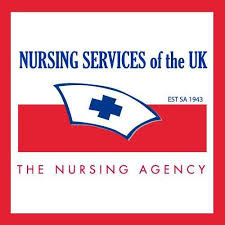Navigating Ethical Dilemmas in Nursing: A Guide for Nurses
/Managing ethical dilemmas is a crucial aspect of nursing, as nurses often find themselves in situations where they must balance competing values and make difficult decisions. Here are some common ethical challenges nurses face and guidance on how to handle them professionally.
Common Ethical Challenges Nurses Face
Patient Autonomy vs. Beneficence
Nurses are obligated to respect patients' rights to make their own decisions about their health. This can sometimes create conflict between a nurse's duty to act in the patient's best interest. Open communication and providing all necessary information about treatment, including the risks and benefits, are crucial.
Informed Consent
Nurses must ensure that patients have all the information they need to make informed decisions. This can be challenging if the patient has cognitive impairments or language barriers. Nurses should use clear and simple language and visual aids when necessary. It's also crucial to verify that the patient understands the information. This can be done by asking patients to explain the information back to you and involving family members or interpreters when necessary.
Confidentiality vs. Mandatory Reporting
Nurses need to maintain patient confidentiality but are required to report on suspected abuse or infectious diseases. They must follow the legal and institutional guidelines for mandatory reporting. And in these circumstances, they need to explain to the patient why certain information must be reported and reassure them that that their privacy is being protected as much as possible.
Resource Allocation
Limited resources such as staff, equipment and medication can force nurses to make difficult decisions about who receives care first. They need to prioritise care based on clinical need and urgency and communicate transparently with their patients and families about limited resources and the reasoning behind decisions.
End-of-Life Care
Decisions about life-sustaining treatments and palliative care can be emotionally charged and ethically complex. It is crucial to respect the patient's wishes and advance directives, and to facilitate discussions between patients, families, and healthcare teams to ensure that care aligns with the patient's values and goals.
Professional Guidance
Refer to the Code of Ethics: the Nursing and Midwifery Council (NMC) Code provides a framework for ethical decision-making. Familiarise yourself with its principles, such as autonomy, beneficence, non-maleficence, and justice.
Education: staying up to date with training and educating yourself on ethics in nursing is essential for providing high-quality patient care and maintaining professional integrity. Continuous education on ethical principles helps nurses navigate complex situations with confidence and ensures that their decisions align with current standards and best practices. Engaging in regular ethics training, attending workshops, and participating in discussions with colleagues and ethics committees can provide valuable insights and foster a deeper understanding of ethical issues. By staying informed about emerging ethical challenges and evolving guidelines, nurses can enhance their critical thinking skills, uphold patient rights, and contribute to a culture of ethical excellence within their healthcare organizations.
Consult with Colleagues and Ethics Committees: when faced with an ethical dilemma, seek input from colleagues, supervisors, or an ethics committee. Collaborative discussions can provide new perspectives and support.
Document Thoroughly: keep detailed records of the decision-making process, including the information provided to the patient, their responses, and the rationale for your actions. This documentation can be crucial if the decision is later questioned.
Reflect on Personal Values: regularly reflect on your own values and how they influence your practice. Being aware of your biases can help you make more objective decisions.
At Nursing Services of the UK, we recognise that the ethics of nursing and nursing agencies are essential in providing the highest standards of patient care and maintaining professional integrity. Our commitment to ethical practice ensures that our nurses are equipped to handle the challenges they may face in a clinical setting with confidence and integrity, always striving for the best possible outcomes for every patient.
We understand that ethical decision-making is a continuous learning process. That’s why we prioritise the ongoing support and education of our nursing staff, empowering them to make informed decisions and grow professionally. By fostering a culture of ethical excellence, we ensure that our nurses are not only skilled but also uphold the values that matter most, compassion, respect, and dedication to patient well-being.
As a nursing agency, we play a crucial role in upholding these ethical standards. We ensure that our nurses are well-trained, competent, and adhere to professional guidelines that prioritise patient safety, confidentiality, and informed consent. At Nursing Services of the UK, we are proud to support our staff in delivering care that is not only professional but deeply rooted in ethical principles, ultimately enhancing patient outcomes and fostering trust in the healthcare system.

